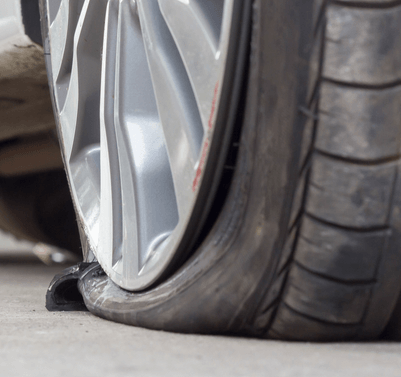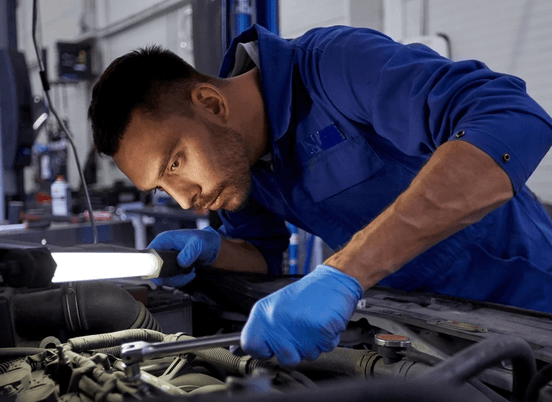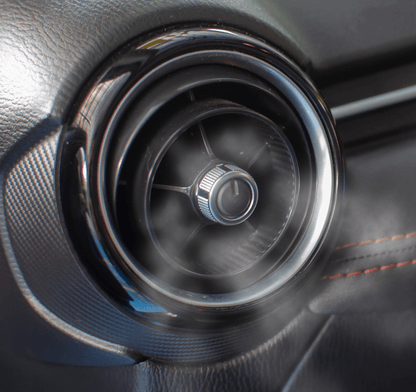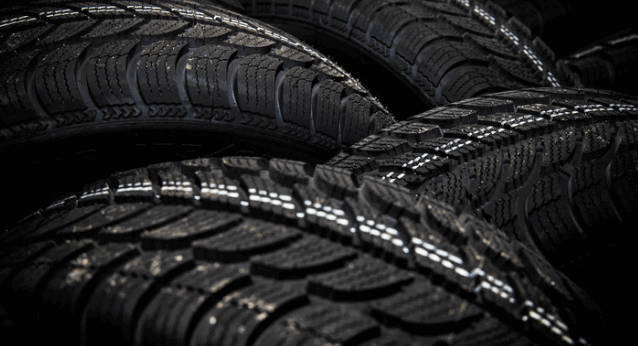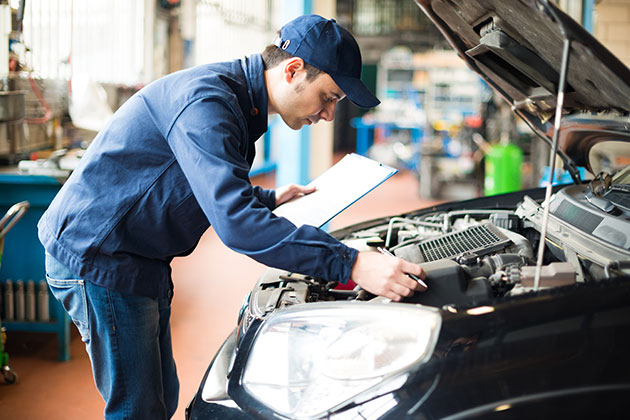A huge part of owning a vehicle is keeping up with its maintenance. If you own a vehicle, regular maintenance requirements like oil changes and tire rotations have probably become routine. However, some issues aren’t so routine but must be taken care of right away. One of those issues is your vehicle’s wheel alignment, which refers to how your tires are angled on your car. During an alignment, your vehicle’s suspension system will be adjusted to better angle your tires and maximize their contact with the road.
When your car is misaligned, you’ll find it harder to control your vehicle, and your tires will experience more wear and tear than normal. Wheel misalignment usually happens over time with standard wear and tear, but passing over bumps or potholes at high speeds or hitting a curb can cause sudden jarring and throw the wheels out of alignment. As you try to prevent the negative effects of a misaligned vehicle, review the top five most common symptoms your car will exhibit when it needs a new wheel alignment.
1. Vehicle Pulls to the Right or Left
When traveling down a road without any curves or bends, does your car try to pull to the right or left? If you’re not sure, pay attention to your hands the next time you’re driving straight. If you use one more than the other to keep the vehicle straight, it’s probably because it’s pulling to that side more often.
Most people believe vehicles should stay straight if you take your hands off the steering wheel, but that’s not true. Each road crowns to some degree which will cause vehicles to pull slightly to one side. However, when the car pulls to the same side on every road, it likely needs an alignment.
2. Steering Wheels Won’t Stay Centered
The steering wheel should stay straight and centered unless you’re making a turn. The easiest way to check for this issue is to look at the emblem in the center of your steering wheel. It’s time to take the car in for maintenance if it’s crooked. Also, if the steering wheel doesn’t naturally return to the center after making a turn, that is usually an indication that the alignment is off.
3. Steering Wheels Feel Loose
When the steering wheel feels wobbly and unstable, poor wheel alignment is usually the cause. You’ll find yourself constantly making small corrections to keep the car straight. Let a mechanic take a look at the issue to determine if a wheel misalignment is the source of the problem.
4. Tire Wear Patterns May Be Abnormal
Are your tires worn in certain spots but not in others? This inconsistent wear is usually a sign that the vehicle’s wheels need to be aligned. For instance, you’ll probably need a wheel alignment if the treads closer to the vehicle are in great shape but the treads on the opposite side are almost bald. Additionally, if the tire treads are worn down too quickly, that may be another indication that the wheel alignment is off.
5. Squealing Tires
When it comes to keeping your wheel aligned with the ground and other wheels on the vehicle, the camber and toe settings come into play. When one of them strays from its position, it creates friction which leads to strange noises.
One of the strange noises coming from the tires will be squealing. When you hear this obnoxious sound, don’t hesitate to take your car to a local mechanic.
Wheel Alignment Near Me in Durham, Chapel Hill, and Raleigh
If you’re looking for a wheel alignment near you in Raleigh, Chapel Hill, Durham, or the surrounding Triangle area, Chapel Hill Tire has you covered. With over 11 convenient Triangle locations, Chapel Hill Tire makes it easy and convenient for you to receive wheel alignment services. Once you bring your vehicle in, one of our certified mechanics will identify the exact issue and get you back on the road in no time.
Instead of spending one more second worrying about that shaky steering wheel or loud squeaking coming from the tires, schedule an appointment today for a free alignment inspection. Don’t forget to view our promotions and take advantage of any discounts related to your service.

